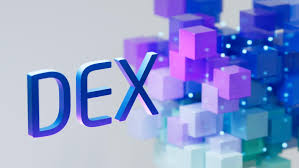Bitcoin's privacy dilemma: can it be 100% anonymous?
"Privacy is one of the biggest issues in this new electronic age" -Andy Grove
Bitcoin transactions are semi-private, not anonymous, which is an important feature. However, achieving complete anonymity with Bitcoin can be a complicated matter. Transactions recorded on the blockchain are public and are associated with only one electronic address.

Image source: pixabay
- Opinion | Members of the Korean Financial Services Commission: Lack of actual use is the biggest obstacle to the development of cryptocurrencies
- Sun Yuchen used capital hegemony to control Steem, causing controversy, the integrity of stolen users' voting rights was questioned
- Google Play delisted the app many times to provoke public outrage. When can decentralization lead the future?
The Bitcoin blockchain contains an immutable public ledger that records all transactions and can be viewed by anyone at any time. However, despite the expectation that Bitcoin is semi-private, many well-known Bitcoin Big Vs have published their wallet addresses on their websites and blogs, hoping that readers can donate Bitcoin. Many influential people in the field are still doing this, which is the most common way to leak ownership of a Bitcoin address.
Similarly, regulated cryptocurrency exchanges that follow your customer (KYC) and anti-money laundering (AML) laws will pay close attention to users' funds. This process is designed to identify and eliminate fraudsters on the exchange. Blockstream CEO Adam Back said in response to questions about the Quora blockchain platform:
"Convert bitcoin to your national currency at an exchange that knows your address: Mt. Gox Exchange is watching your situation closely. Then this information was leaked. Almost every exchange that deals with national (legal) currencies has to Complying with anti-money laundering regulations, so customers must prove their identity by providing government-issued ID cards, scanned bank statements and utility bills. "
However, because private transactions and the market are so opaque, the confidentiality of trading activities may be suitable for those who want to keep their privacy, so users can always choose the OTC platform for trading.
Bitcoin supporter and Casa co-founder Jameson Lopp emphasized the non-privacy factor of Bitcoin transactions in a recent podcast, adding that while OTC and face-to-face transactions have their own benefits , But also has its own disadvantages. Ropp stated the same point, saying:
"You can avoid associating your identity information with bitcoin purchases, although identity information is usually required for over-the-counter or face-to-face transactions. But even if you do, you must Ask yourself when trading, you are essentially giving up your coins, because you know that the person you are transferring may know where the money came from. "
If users want to achieve 100% privacy, then it is best to choose mixed currency transactions. Coin mixers like CoinJoin are a way to confuse on-chain links between unspent transaction outputs (UTXO).
However, it also has a downside. Criminals and money launderers can also easily hide their transactions, thereby avoiding surveillance by police and other regulators. For these reasons, top cryptocurrency exchanges like Binance don't like coin mixers much.
However, as Binance founder Zhao Changpeng said, privacy-conscious users always choose privacy coins. There are pitfalls here too. In 2019, as the Intergovernmental Organization's Financial Action Task Force (FATF) released new global anti-money laundering standards, many exchanges stopped trading privacy-focused cryptocurrencies such as Monero. The latest implementation of this move is the Estonia-based BitBay exchange, which announced that it will delist Monero to "prevent the possibility of money laundering and inflows of funds from external networks."
We will continue to update Blocking; if you have any questions or suggestions, please contact us!
Was this article helpful?
93 out of 132 found this helpful
Related articles
- Money, commodities, or securities? What is Bitcoin? This issue will have a significant impact on the future of cryptocurrencies
- Free and Easy Weekly Review | The strongest shield of privacy is threatened, how can the blockchain resist side channel attacks?
- National consumption code, national digital currency, 40 trillion new infrastructure and ABCDE five weapons to save the economy
- The only platform currency that has been locked up-the "sandwich" exchange marginalization crisis
- $ 9.8 billion in digital assets stolen in 3 years, is your wallet still safe?
- U.S. Treasury's latest stance: Cryptocurrencies will not be tolerated to support illegal activities, balancing innovation with national security
- QKL123 market analysis | Halving and destruction, a bull market catalyst? (0303)




